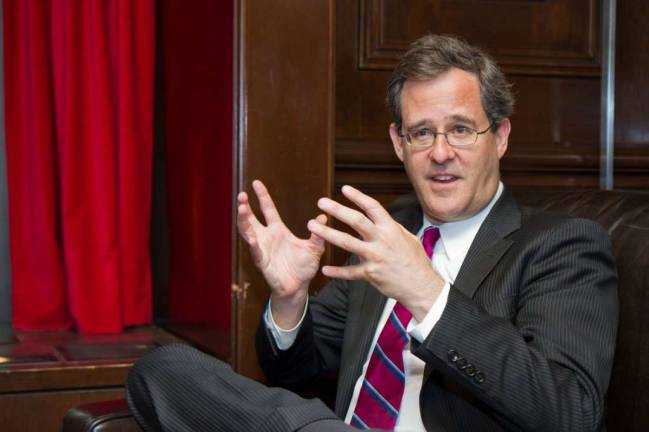Will Democratic Primary Be Like 2001 or 1977?

The first round of voting for our next mayor could easily repeat history
Like the old saying goes: "Those who do not understand history are destined to repeat it."
This is true in local politics as it is for broader social issues. And in this year's mayoral campaign, it may be more instructive to rewind the tape not 12 years (to 2001) but rather 36 years (to 1977).
In 2001 and 2005, like 1989, there were four leading Democratic Mayoral candidates in each primary. In each of these three cases, the supposed "frontrunner" a year before the primary did not actually emerge victorious when all the votes were counted.
In each of these three campaigns, two candidates near the end of the race became embroiled in a battle for the top spot, while the two others badly sunk to the bottom.
In 1989, Edward Koch, the three-term incumbent, was seen as a prohibitive favorite a year before the primary. His challengers -- Manhattan Borough President David Dinkins, Comptroller Jay Goldin and former MTA Chairman Dick Ravitch -- all sensed that Koch had overstayed his welcome.
Dinkins emerged as the racial healing alternative to Koch and he beat the beleaguered incumbent by a margin of 49 percent to 42 percent while the highly intelligent Ravitch and Goldin fought a race for the bottom, drawing 5 percent and 4 percent, respectively.
In 2001, Alan Hevesi (who was recently released from prison after serving time for corruption charges) was the "frontrunner" a year before the primary, but his fortunes and those of popular City Council Speaker Peter Vallone both dropped precipitously as Latino candidate Freddy Ferrer and former Public Advocate Mark Green duked it out for the top spot. The final percentages in that campaign were: Green 31, Ferrer 35, Hevesi 12 percent and Vallone 19 percent.
Green won a racially bruising run-off with Ferrer, but his pyrrhic victory then reaffirmed that old maxim: "Don't win the battle but lose the war." Green was narrowly defeated by political neophyte Mike Bloomberg in the general election.
In 2005, when Bloomberg ran for re-election, the Democratic field included Freddy Ferrer again, popular City Council Speaker Gifford Miller, Manhattan Borough President Virginia Fields and a feisty Brooklyn Congressman named Anthony Weiner.
The final result of that primary was similar to 1989 and 2001: two at the top, Ferrer at 40 percent and Weiner at 30 percent, and two near the bottom, Fields at 15 percent and Miller at 10 percent.
So, we see a pattern emerge: in 4-way races, two candidates break out of the pack and then the other two, who fail to get traction, drop to the single digits.
But in 2013, there are 7 contenders for the Democratic nomination, and to paraphrase the old song, it feels like 1977 all over again.
That year, there was also a 7-person field, and the primary result had four finishers all below 20 percent and within 5 percentage points of each other. Here was that primary finish: Koch 19, Cuomo 18, Beame 18, Abzug 17, Sutton 14, Badillo 11, Harnett 2,...
So, could this year's Democratic primary have a similar result to 1977 where there was 5 people in double digits, or will it be more like 1989 and 2001, when only two candidates reached above the single digit mark?
It would be too glib to say that frontrunner Christine Quinn is this year's version of the 1977 frontrunner, Bella Abzug, but they do have a lot of issues and style in common besides both being brash women.
Is Anthony Weiner this year's Edward Koch, the glib and fast-on-his feet outsider who had some sexual ambiguities that made him a curiosity but did not impede his path?
Is Bill de Blasio the Mario Cuomo of this race, the smooth-tongued progressive who ultimately fell short in a close race?
And will Bill Thompson be like Percy Sutton, the likable and smart candidate who fell short because he failed to ignite passion for his candidacy?
It's hard to draw exact parallels between 2013 and 1977, but when it comes to mayoral politics, it sure feels a lot like the "Saturday Night Fever" days of the late 70s.
Tom Allon, the president of City and State, NY, was the Liberal Party-backed mayoral candidate last year. He can be reached at tallon@cityandstateny.com